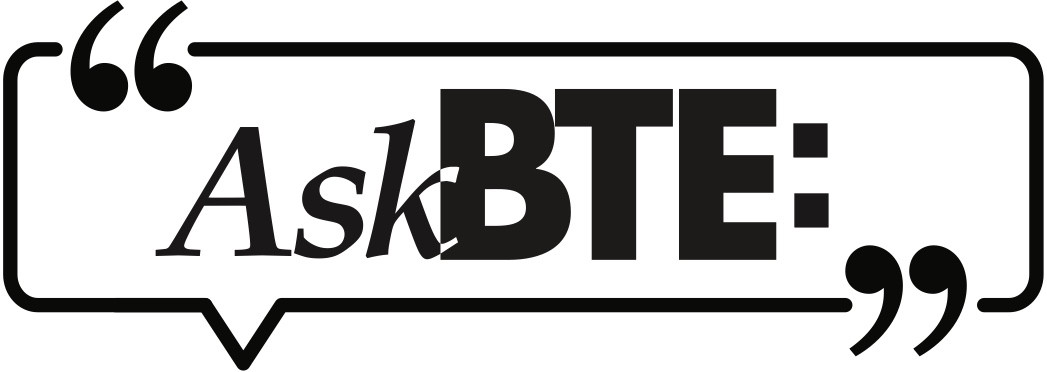During the past several years we have witnessed an upsurge of “soft brands” under the umbrella of large hotel groups. Soft brands are an associated collection of hotels that retain their unique signature but are positioned in a way that distances them (somewhat) from the chain’s national branding.

From a hotel owner’s point of view, soft brands have a perceived benefit because they are not bound by the often-strict rules and regulations of a “hard brand.” Yet, these hoteliers can still take advantage of the chain’s public standing, recognition, customer loyalty programs, sales and marketing, and networks.
“Soft brands have more of a buffet-style approach and tend to be more compliant within a managed travel program. There is a large focus on guest safety, especially regarding devices and connectivity/technology issues,” says David Mollov, managing director, hotel solutions for TRIPBAM. Soft brands make it possible for travelers to stay in reputable off-brand hotels, while travel buyers find value by working within the parameters of the major chains.
Independent hotels are a little different; they are free of brand, marketing and franchise fees, traditional loyalty programs and other major corporate brand restrictions. “An independent hotel doesn’t participate in a chain-wide savings program. Rather, the emphasis is on the traveler experience, so it can offer whatever add-on services, amenities or brand names it likes,” Mollov explains.
The Changing Landscape
There’s so much going on with independents and soft brands, travel managers are constantly finding new opportunities – and new challenges. Among the several drivers shifting the lodging landscape, the most significant are demographics and technology.
A new breed of travelers, mainly Millennials, are increasingly asking for exclusively “distinctive” experiences. ”They want more lifestyle hotels that offer unique experiences which are different than the typical bed-in-a-box concept,” states Jonathan Hamblett, senior vice president, Americas at HRS.
“Hotels have not lost sight of the fact that this growing segment of the business travel population wants something uncommon,” Hamblett explains. “Although the major chains offer a sense of familiarity and identity to travelers who have come to expect the same features, such as room layout or amenities, this cookie cutter approach doesn’t work for everyone. Some younger travelers don’t care; in fact, some want to break the mold,” he adds.
“Over the last few years the major chains have recognized that Millennials have different tastes. They want to share in experiences popular among the locals,” adds Kim Kearns, senior director global hotel relations, supplier relations at BCD Travel. “Hotel chains are updating their portfolios accordingly.”
Another feature that has helped to shift the hotel landscape is new advances in distribution and aggregation technology. “Our proprietary technology helps to break down the fragmentation of the hotel industry, cutting across all kinds of distribution capabilities, such as the GDS, an extranet which connects to smaller chains, direct connects to major players, on-the-ground sourcing experts, as well as other tech partners and channel managers that help us gain efficient access to independent hotels. This array of advanced capability helps us bring value to the travel manager,” states HRS’ Hamblett.
Booking the Best
Traveler demands for independent hotels or soft brands is causing a flurry of activity for hotel travel programs. Often times, buyers struggle to find the best deals for their travelers; yet the thought of investigating yet another new line of hotels can feel overwhelming.
How can the task of hotel bookings become easier? “Most hotel brands can be booked via the GDS,” notes Alison Guilbeaux, director of business analytics at Yapta. “Regardless of where travelers book, via an OTA or any other hotel booking source, a distribution strategy is key for any hotel's success and the GDS still dominates as a major source for hotel bookings.”
However, according to Yon Abad, VP Suppliers at RoomIt by CWT, “There is also a long tail of independent properties who are not loaded nor bookable through the GDS, but TMCs like RoomIt can offer these properties through their own unique content or third-party content.”
Meggan Binder is event sales manager at the independent Fairlane Hotel, a retro-modern boutique hotel located in Nashville’s bustling downtown business and arts district. “Booking direct is our preferred method. It allows us to ask all the right questions – purpose of travel, arrival/departure information, etc. – to really customize the guest’s stay. It can also lead to special packages and further discounts that may not be offered elsewhere,” Binder says.
“As more companies turn towards outsourcing, this will free up travel managers,” Hamblett says. “Outsourcing companies can provide business intelligence on properties, helping to simplify the complex decisions that travel managers have to make regarding costs, availability of rooms and risks. We aren’t anti-chain nor pro-independent; we’re pro-corporate customer,” he adds.
“Travel managers have legitimate concerns. In the past it was difficult to find these boutique or small independent hotels. Today, there are several options available to hotel owners/operators to decide how best to market and distribute their hotel rooms,” Kearns states.
“Many are choosing to sign up with hotel chains in one of the many soft brands, i.e. Hilton’s Tapestry or Curio hotels; Best Western’s Premier Collection or WorldHotels; Marriott’s Tribute Portfolio, Autograph, or Luxury Collection, to name a few,” she explains. “Others opt to work with companies such as Small Luxury Hotels, TravelClick, Sabre Hospitality or HotelRez. With platforms like BCD Travel’s TripSource, travel programs are able to offer a variety of options to their full range of travelers.”
Are Points Pointless?
The decision to book into a major chain, a soft brand or an independent hotel is influenced by a number of reasons, including the type of experience offered, technology and pricing – and lest we forget – the lure of loyalty points.
“Most independents/smaller properties don’t have their own loyalty programs. That’s one of the reasons that many sign up as a soft brand with a hotel chain,” Kearns explains. “They get the best of both worlds, their autonomy/uniqueness, with the perks associated with chain loyalty programs. Thus, encouraging travelers to book through their preferred booking channels can become very important.”
However, according to Claire Eustis, sales manager at The Read House hotel, in Chattanooga, TN, while some independent hotels’ loyalty point programs may not be as large-scale as the soft brands, they have other redeeming qualities. “iPrefer, Voila and Stash are fairly large collections of independent hotels under a shared rewards program umbrella. Nonetheless, because independents are not limited by brand uniformity, they have the leeway to be creative. This makes them stand out when selling against big brands.”
In other words, eliciting loyalty from customers can go beyond tallying points. “Boutique and independent hotels offer an experience and a special environment that a guest will not find at a big brand hotel,” asserts Fairlane’s Binder. “In addition, guests are all treated at the same high level of service. You don’t get a better experience just for having a certain level of points or a worse stay if you don’t have enough points.”
[bf] Where in the World [end bf]
While travel buyers may respect their travelers’ preferences regarding point programs, there are other factors to consider when trying to find the right fit for them. “Business travel tends to be highly influenced by location,” notes Yapta’s Guilbeaux. “Therefore, there are occasions when the independent hotel will be the supplier of choice because of its location. However, as long as the independent offers value, service and basic amenities, they can contend with the big brands.”
HRS’ Hamblett concurs. “While points are very important to business travelers, and soft brands capitalize on this, our data is showing the prominence of points is losing ground to ‘the experience,’ which instead focuses on customer satisfaction, duty of care, location and convenience,” he says. “In fact, North American travelers cited proximity to work and to dining options, and amenities as the most important factors to consider when booking a hotel.
The “experience” of an optimized lodging program is what is helping independent hotels get on the radar of managed travel programs and win solid bookings from corporate clients. “When it comes to maintaining and growing business from clients we’ve already won, we consistently deliver fun, unexpected enhancements to guests,” explains Jackie Galea, area director of sales at Archer Hotel, a boutique hotel collection in New York City.
Vetting the Unknown
Because major brands take duty of care very seriously, booking travelers into chains (and their associated soft brands) has been a no-brainer. But with escalating demands for independents, a new portal into the world of risk management has opened up.
Sometimes, buyers have to rely on their TMC’s safety and security assessment. “Independent hotels that are part our programs are vetted through more than 60 safety and security questions and inspected by our market managers,” says Abad.
But other times, it’s just a risk that travelers want to take. “When it comes to the traveler experience, independent hotels offer that differentiation desired by many travelers,” explains Tripbam’s Mollov. “But you never know exactly what experience lies ahead. While travelers may understand that it’s perhaps riskier to stay in an independent hotel, his or her expectation is likely broader too.”
While independent hotels have to meet similar standards to other properties – for example, liability insurance, permits and inspections – Mollov says a corporate program must rely on the oversight of the locality the property is in. “That’s why when travelers go overseas, travel buyers are less willing to take risks and tend to book with US traditional brands they know. At the end of the day, safety is about balance,” he says.
“With today’s technology and the ability to access accommodation content from multiple sources into one platform, travel buyers and their travelers can rest easy knowing that the types of accommodations they desire most are at their fingertips,” says BCD’s Kearns. “This assists with the duty of care, especially outside North America where chains and brands are not nearly as dominant as independents,”
The Foreseeable Future
Independents and soft brands are poised to continue to change the nature of the corporate travel sandbox. And that can be an advantage for the managed travel program – provided buyers consider some potential pitfalls: “For example, does the hotel brand align with the company’s policy? Is it too upscale compared to the other hotels in the program? Is there a lack of brand awareness regarding amenities, location, and cultural alignment?” asks Guilbeaux.
While independent hotels have their challenges, including working harder to get on the radar of travel programs, growing their brand recognition, assuring customer loyalty without a huge rewards program in place, and having limited resources in comparison to the big brands, travel buyers should remain open to these out-of-the-box options for their travelers.
“Buyers should make independent and soft brands clearly visible in their program, with extensive descriptions for their booking audience - whether they are admins, executive assistants or travel managers. Creative communication can help them get more traction for those hotels,” advises HRS’ Hamblett.









